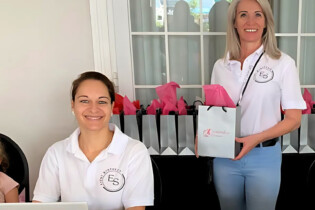Business at any price, is it worth it?
With the pressures of business’ ever-increasing competition, combined with challenging economic times, more companies may be influenced to behave in a manner that could be considered – if not illegal – unethical.
We’re all faced with potential dilemma during our professional life. It’s perhaps the obvious potential lack of consequences that enables ethical ‘slippage’ to occur.
In the exhibitions and events industry there are noticeable examples of questionable behaviour, and if we had to dissect today’s ethical code, would we all agree on the same fundamental principles?
One of the most critically under-appreciated areas of anybody’s company is ‘Intellectual Property’ (IP). In many instances this can be protected through the use of Patents and Trademarks, even Copyright; however, on the day-to-day practices of business it’s far more difficult to guard.
Let’s look at stand design and construction companies, for example. They are repeatedly faced with the dilemma of whether to quote based upon a ‘competitor’s’ design. A client presents a design and asks ‘what would you charge for this?’ Unless the client has commissioned and paid for the design in question, they’re utilising the designer’s IP for their own commercial gain. Within the industry, this is seen as IP theft and is disturbingly common. Client aside, the company being asked to provide a price is also in the dilemma, knowing full well if they don’t provide the requested quotation then they definitely won’t get the job. Finally, there’s the quandary of the original design company who’s virtually forced to accept such abuse of their creative process in order to avoid being excluded from all work in the future.
The situation isn’t restricted to service suppliers. Organisers have to carefully assess how to protect their exhibition from being copied and potentially hijacked. A successful show will draw attention from competitors who aim to ‘plagiarise’ the blueprint of the show and host a similar one, circumventing any legal protection of expensive trademarks. Such a show will always be hosted prior to the established show, sometimes by only a few weeks, in order to gain from the marketing, good name and position of the established show. This ‘ambush marketing’ approach is designed to confuse stakeholders of the established show, be they exhibitors, sponsors or visitors.
There may be nothing illegal in such actions, some may even refer to this as ‘healthy competition,’ but whether or not such actions are good for the sector is debatable. I suspect there’s only one party that initially benefits in the short term from such actions.
The primary objective for most organisations is sustainability. To achieve this objective companies must possess respect and integrity to build ongoing relationships, not only with clients, but with industry peers too. Ethics point to standards of behaviours expected and can be defined in variable terms such as national, social, company, professional and family. Morals represent your individual values and reflect the ethical environment in which we live.
We need to guard our industry and ensure our professional ethics build rather than destroy. We have to take responsibility and be accountable for our actions, working in good faith with other industry stakeholders building a trust which is necessary for businesses to thrive.






